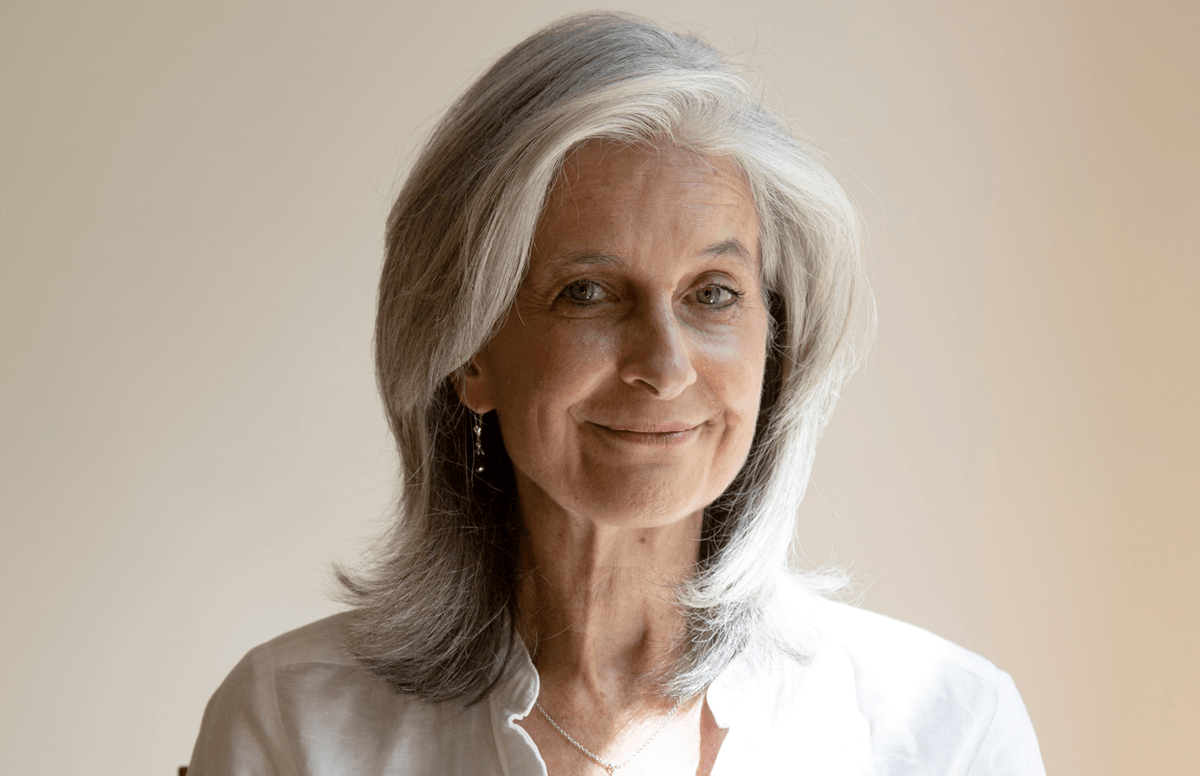Dr. Tia Powell: Working Toward Better Lives for People With Dementia
New thinking about dementia is why she's a 2019 Influencer in Aging
Dr. Tia Powell is a professor of psychiatry and bioethics at the Albert Einstein College of Medicine in New York. She is the director of the Montefiore Einstein Center for Bioethics and the Einstein-Cardozo Master of Science in Bioethics program.

Powell has many interests related to bioethics, including public policy, dementia, end-of-life care, LGBTQ people and public health disasters. She was the executive director of the New York State Task Force on Life and the Law, which is the state’s bioethics commission. She has also worked with the National Academy of Science, Engineering and Medicine on many public health and ethics projects.
Most recently, Powell has received national attention and praise for her book Dementia Reimagined: Building a Life of Joy and Dignity from Beginning to End. The book, released in April 2019, blends a history of how dementia has been viewed in the U.S — by society and the medical world —with her thoughts on what compassionate care for people with dementia could ideally be and how she’d like to live if she’s given a diagnosis of dementia, as others in her family have.
Next Avenue: How did you come to specialize in bioethics?
Dr. Tia Powell: I was always interested in bioethics, even before I started med school. I was interested in ethical tensions, and being in med school, that just enhanced my curiosity.
"Even today in medicine in America, there are way too many people dying in intensive care units when there's not a likelihood that intensive care medicine would benefit them."
You’ve told me about a case from the 1980s you learned of during medical school that really upset and influenced you. It was a man in his fifties who was severely developmentally disabled and had terminal bladder cancer. The doctors insisted he keep receiving blood transfusions when his blood counts were low, even though it wasn’t extending his life much. The transfusions terrified him, and he had to be tied down for the procedures, so his mother wanted the doctors to stop them. But they wouldn’t. It went to court and the judge ruled in favor of the doctors.
Reading it, I almost couldn’t believe it. And that's a long time ago. It's really before understanding of palliative care. It's before disability rights. It’s before we were thinking about how, even for somebody who doesn't officially have decision-making capacity, how do you respect their preferences and values? And, you know, death is inevitable: How do we understand what a good death is for a particular person?
So, it was before all of that. It really made me feel like, ‘Wait, I thought you guys were in charge. I thought you had good decision-making. I thought you knew what you were doing, but I see that you don’t!’ And it really got me interested in bioethics, and particularly in the psychologically complex aspects of medical decision-making.
That's such a sad story. In fact, it’s hard to believe that even by the 1980s we hadn't come to a better understanding of end-of-life care.
And I think even today in medicine in America, there are way too many people dying in intensive care units when there’s not a likelihood that intensive care medicine would benefit them. So, we still need to do some work in peeling away what is simply inaccurate information about what the potential benefit of a medical treatment is. How can we take seriously people's preferences and values about their care in every stage of life?
What do you think are the primary bioethics concerns related to dementia care?
There are a couple different problems that I think are big bioethics problems in dementia. One is stigma. Dementia is a fatal illness; it's a serious thing all by itself. But there's also a huge burden of stigma and isolation that we place on people with dementia and their caregivers.
Are there things health care providers should be doing to help people with this?
Absolutely, there's a lot. And there are a lot of people working on this, I think at every level.
So, let's say you go to a doctor's office and you’re given the diagnosis of dementia. In a lot of very good hospitals — academic medical centers with research and medical schools — the standard of care is: I do some tests; I figure out, yep, you meet criteria for dementia; I offer to enroll you in a study because we don't have any effective treatments for dementia and then I say goodbye.
And people walk out, and they feel like they've been hit across the head with a two-by-four. So, I think, ethically, OK, we don't have a cure, we don't have what we think of as a medical treatment to offer. But these people are in our care.
The standard should be, let's think about what plans you need to make.
I'm going to refer you to a social worker, and that needs to be a covered service for your insurance. Do you need to just have some support groups that you go to, to think this through? Maybe you need to think about your housing. Is it good for aging in place, for being vulnerable? Are you the financial decision maker in your family, and now you have dementia? And are you aware that financial thinking ability is one of the first things to go in dementia? So how can we help you protect your finances, make some plans?
And not just preparing for bad things. What good things can we advise you about? What do you love to do that you can still keep doing? How can we help you with quality of life?
And, we can't retrain every neurologist to do that; it’s not right for that person to have that job. But it's right for that person to know that job needs doing, and to figure out how they can take responsibility for plugging you into a new world of things that you're going to need some help with.
So, right from the first day, from the day somebody tells you they think you have dementia, I'd like to see us think about that differently. And right now, that’s not the standard of care. The best places don’t do that.
Do you think it’s because physicians don’t feel it is their job?
Right. ‘That's not medicine.’ And that's, basically, incorrect. I think it's an ethical problem to say, ‘Well, you know, I'm a physician, I don't deal with social work.’ You should say, ‘I am a physician, I deal with the care of people.’
It doesn't have to be a billable service. And I get it, medicine is complicated. You don't have to do that work, but you should be aware that these are the ways that we actually can help people.
So, I think that's from day one. And then there are a lot of things we could do for people in the middle phases of dementia.
There's a wonderful book called The American Healthcare Paradox, which makes a simple, really important point, which is that the reason other economically advanced countries that are our peers have better health outcomes is that they put more money into social services than we do.
They put much less into acute medical care, but they put more into social services. So, if you want good health outcomes, if you actually just care about health rather than medical care, you put more money into social services.


